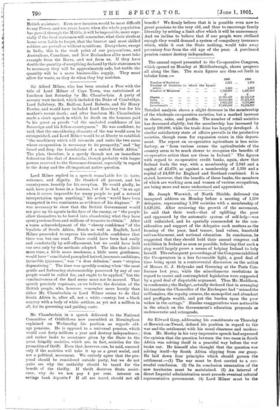Lord Milner replied in a speech remarkable for its taste,
reticence, and dignity. He thanked all present, and his countrymen, heartily for his reception. He would gladly, he said, have gone home in a hansom, hut if he had. "in an age when it seems impossible for many people to putt a natural interpretation upon anything," his action "would have been trumpeted in two continents as evidence of his disgrace." It was necessary to show that the British Government would not give up its agents in the face of the enemy; or "the people allow themselves to be bored into abandoning what they have spent precious lives and millions of treasure to obtain." After a warm acknowledgment of the "cheery confidence" of the loyalists of South Africa, Dutch as well as English, Lord Milner proceeded to express his unshakable confidence that there was but one road. Peace could have been had easily and comfortably by self-effacement, but we could have held our own only by the methods adopted. The idea that a little more time, a little more meekness, a little more gentleness, would have "conciliated panoplied hatred, insensate ambitions, invincible ignorance," was "a dear delusion," mere "utopian dogmatising." The time was speedily coming when "the most gentle and forbearing statesmanship possessed by any of our people would be called for, and ought to be applied," but the conclusiveness of the final scene must not be marred. That speech precisely expresses, as we believe, the decision of the British people, who, however, remember more keenly than either Mr. • Chamberlain or Lord Milner seems to do that South Africa is, after all, not a white country, but a black country with a body of white settlers, as yet not a million in all, for its governing and guiding caste.






































 Previous page
Previous page